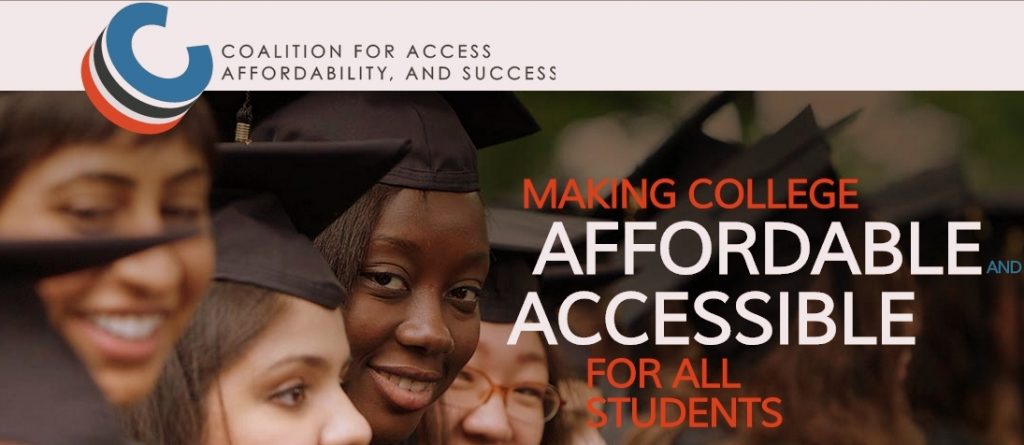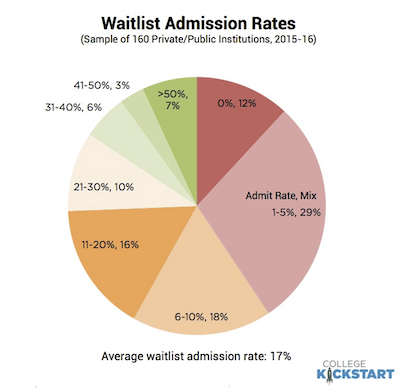Brennan Barnard, Director of College Counseling at The Derryfield School in Manchester, New Hampshire, annually asks college admissions deans and high school counselors to send him recommendations of books that are “great” summer reads. You can see last year’s list here; the 2014 list here, the 2013 list here in the New York Times, and the 2016 list, below. Some solid reads on this list, and many that I have read!
For Parents:
“Untangled: Guiding Teenage Girls through the Seven Transitions into Adulthood” by Lisa Damour
Recommended by: Sally Diehl, Director of College Counseling, Roland Park Country School, MD
“Far From the Tree: Parents, Children and the Search for Identity” by Andrew Solomon
Recommended by: Suzi Nam Director of College Counseling, Germantown Friends School, PA
“Pressured Parents, Stressed Out Kids” by Wendy S. Grolnick, Ph.D. and Kathy Seal
Recommended by: Beth Ann Burkmar, The Hun School of Princeton, NJ
“Our Kids: The American Dream in Crisis” by Robert D. Putnam
Recommended by: Carrie Brodsky, Associate Director of College Counseling, Westtown School, PA
“Age of Opportunity: Lessons from the New Science of Adolescence” by Laurence Steinberg
Recommended by: Amelia Johnson, Assoc. Dir. of College Counseling, Baylor School, TN
“American Girls: Social Media and the Secret Lives of Teenagers” by Nancy Jo Sales
Recommended by: Meg Scott, Associate Director of College Counseling, The Agnes Irwin School, PA
“The Teenage Brain: A Neuroscientist’s Survival Guide to Raising Adolescents and Young Adults” by Frances E. Jensen
Recommended by: Peter Jennings, Director of College Counseling, Concord Academy, MA
“How to Raise an Adult: Break Free of the Overparenting Trap and Prepare Your Kid for Success” by Julie Lythcott-Haims
Recommended by: Debra Shaver, Dean of Admission, Smith College, MA
“The Curse of the Good Girl: Raising Authentic Girls with Courage and Confidence” by Rachel Simmons
Recommended by: Debra Shaver, Dean of Admission, Smith College, MA
“The End of American Childhood” by Paula S. Fass
Recommended by: Susan Zarwell, Director of College Counseling. University School of Milwaukee, WI
“The Gift of Failure” by Jessica Lahey
Recommended by: Jed Stuart, Associate Director of Admissions, The Gunnery, CT
“Untangled: Guiding Teenage Girls Through The Seven Transitions Into Adulthood” by Lisa Damour, Ph.D.
Recommended by: Scott Orvis, Director of College Counseling, Saint Mary’s School, NC
Education-related Reads:
“Heroic Leadership” by Chris Lowney
Recommended by: Mike Sexton, Vice President for Enrollment Management, Santa Clara University, CA
“The Naked Roommate: And 107 Other Issues You Might Run Into in College” by Harlan Cohen
Recommended by: Bruce Berk, Associate Director of College Counseling, The Derryfield School, NH
“The Mother Tongue: English and How it Got that Way” by Bill Bryson
Recommended by: Michael Stefanowicz, Assistant Director of Admission, Saint Michael’s College, VT
“Class and Campus Life” by Elizabeth M. Lee
Recommended by: Jenni Pfeiffer, Associate Director of College Counseling, Rye Country Day School, NY
“Creating a Class” by Mitchell Stevens
Recommended by: Jenni Pfeiffer, Associate Director of College Counseling, Rye Country Day School, NY
“Where Everybody Looks Like Me: At the Crossroads of America’s Black Colleges and Culture” by Ron Stodghill
Recommended by: Jennifer Beros, Director of College Counseling, University School, OH
“The Paradox of Choice: Why More is Less” by Barry Schwartz
Recommended by: Carrie Horsey, Associate Director of College Counseling, Head-Royce School, CA
“U Chic, The College Girl’s Guide to Everything” by Christie Garton
Recommended by: Barbara Conner, Director of College Counseling, Foxcroft School, VA
“Ungifted: Intelligence Redefined: The truth about talent, practice, creativity, and the many paths to greatness” by Scott Barry Kaufman
Recommended by: Susan Tree, Director of College Counseling, Westtown School, PA
“The Boys in the Boat: Nine Americans and Their Epic Quest for Gold at the 1936 Berlin Olympics” by Daniel James Brown
Recommended by: Alice Cotti, Director of College Counseling and 11th/12th Grade Dean, Polytechnic School, CA
“There Is Life After College: What Parents and Students Should Know About Navigating School to Prepare for the Jobs of Tomorrow” by Jeffrey J. Selingo
Recommended by: Bernadette Condesso, Director of College Counseling, Poughkeepsie Day School, NY
“Other People’s Children: Cultural Conflict in the Classroom” by Lisa Delpit
Recommended by: Liz Pleshette, Director of College Counseling, Latin School of Chicago, IL
“Remaking College: Innovation and the Liberal Arts” by Edited by: Rebecca Chopp, Susan Frost, Daniel H. Weiss
Recommended by: Karen Bartlett, Assistant Director of Admissions, Middlebury College
For Fun and Thought:
“The Art of Fielding” by Chad Harbach
Recommended by: Eric Ahlstrand, Assistant Director of Admission, Furman University, SC
“Americanah” by Chimamanda Ngozi Adichie
Recommended by: Chemeli Kipkorir, Director of University Guidance, African Leadership Academy
“Self and Soul: A Defense of Ideals” by Mark Edmundson
Recommended by: Matt Struckmeyer, Director of College Counseling, Laguna Blanca School, CA
“Between the World and Me” by Ta-Nehisi Coates
Recommended by: Elizabeth Jamett, Director of College Guidance, University Liggett School, MI
“Where Am I Wearing?” by Kelsey Timmerman
Recommended by: Tracy Stockard, Director of College Counseling Gilmour Academy, OH
“Peak: Secrets from the New Science of Expertise” by Andres Ericson and Robert Pool
Recommended by: David Bonner, Dean, King Low Heywood Thomas School, CT
“It’s Kind of a Funny Story” by Ned Vizzini
Recommended by: Moira McKinnon, Director of College Counseling, Berwick Academy, ME
“Life on Purpose: How Living for What Matters Most Changes Everything” by Victor J. Strecher
Recommended by: Mr. Nicholas Kourabas, Director of College Counseling, Solomon Schechter School of Westchester, NY
“Blindspot: Hidden Biases of Good People” by Mahzarin R. Banaji and Anthony G. Greenwald
Recommended by: Stephanie Balmer, Head of School, Harpeth Hall School, TN
“The Nightingale” by Kristin Hannah
Recommended by: Jody Sanford Sweeney, Associate Director of College Counseling, William Penn Charter School, PA
“Aristotle and Dante Discover the Secrets of the Universe” by Benjamin Alire Sáenz
Recommended by: Scott Herrmann-Keeling, Mary Institute & St. Louis Country Day School, MO
“Grit: the Power of Passion and Perseverance” by Angela Duckworth
Recommended by: Chadwick Fulton, Associate Director of College Counseling, St. Andrew’s Episcopal School, TX
“Just Mercy: A Story of Justice and Redemption” by Bryan Stevenson
Recommended by: Janelle Holmboe, Vice-President for Enrollment, Warren Wilson College, NC
“Being Mortal: Medicine and What Happens in the End” by Atul Gawande
Recommended by: Matthew DeGreeff, Director of College Counseling, Middlesex School, MA
“David and Goliath: Underdogs, Misfits, and the Art of Battling Giants” by Malcolm Gladwell
Recommended by: Ivar Moller, Director of North American Admissions, The University of St. Andrews, Scotland
“Creativity, Inc., Overcoming the Unseen Forces that Stand in the Way of True Inspiration” by Ed Catmull
Recommended by: Rhody Davis, Director of College Counseling, Viewpoint School, CA
“Callings: The Purpose and Passion of Work (A StoryCorps Book)” by Dave Isay
Recommended by: Mindy H. Rose, Director of College Counseling, Peddie School, NJ
“All the Light We Cannot See” by Anthony Doerr
Recommended by: Bruce Barton, Director of College Counseling, Holderness School, NH
“Straight Man” by Richard Russo
Recommended by: Corie McDermott-Fazzino, Director of College Counseling, Portsmouth Abbey School, RI
“City on Fire” by Garth Risk Hallberg
Recommended by: Carl Ahlgren, Director of College Counseling, Gilman School, MD
“The Wright Brothers” by David McCullough
Recommended by: J. Carey Thompson, Vice President for Enrollment and Communications/Dean of Admission, Rhodes College, TN
Full article by Valerie Strauss/Washington Post here.



